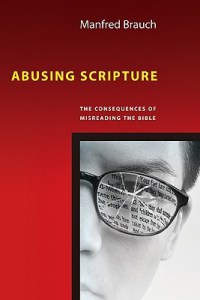In this four-part series, I aim to think about one particular aspect of language: naming. In the introduction, I preliminarily addressed the root of the problem, the Fall. In this post I want to dive deeper into the original ‘scene of the crime' for clues toward the character of the relationship between language and naming. … [Read more...] about Overnaming as The Fall
communication
An Introduction to Naming
Recently the Emerging Scholars Network posted a quote from David Dark's new book Life's Too Short to Pretend You're Not Religious (Downer's Grove, IL: InterVarsity Press, 2016): When I label people, I no longer have to deal with them thoughtfully. I no longer have to feel overwhelmed by their complexity, the lives they live, the dreams they have. I know exactly where they are inside—or forever outside—my field of care, because they've been taken care of. The mystery of their existence has been solved and filed … [Read more...] about An Introduction to Naming
Book Review: Abusing Scripture
Abusing Scripture: The Consequences of Misreading the Bible, Manfred T. Brauch. Downers Grove, IL: InterVarsity Press, 2009. Summary: The author explores the different ways we misread the Bible and consequently interpret and apply it in ways that abuse both the intent of the text, and sadly, in some cases the people with whom we apply these texts. … [Read more...] about Book Review: Abusing Scripture
Communication for Communion, Part 4 (Scholar’s Call)
David Parry wraps up his Scholar's Call series on Communication for Communion. Find Part 1 here, Part 2 here, and Part 3 here. Part 4: Communication and Communion It is a mistake to see language as purely instrumental in the sense of being just to convey information or to get things done. Some aspects of verbal communication don't have any particular conceptual content to them - rather they are there to form or to maintain a connection between persons. For instance, “How are you?” is not primarily a request for … [Read more...] about Communication for Communion, Part 4 (Scholar’s Call)
Communication for Communion, Part 3: Babel and Pentecost (Scholar’s Call)
Last week's post discussed the quest for the Adamic language in the early modern period, understood as a language in which words correspond exactly to the things they represent. This post is Part 3 of a series. See Part 2 here and Part 1 here. But was there ever a language in which the totality of a thing in its essence was communicated fully in words? James K.A. Smith, a Christian philosopher at Calvin College, says no. In his book The Fall of Interpretation, Smith argues that human beings were never intended to … [Read more...] about Communication for Communion, Part 3: Babel and Pentecost (Scholar’s Call)




